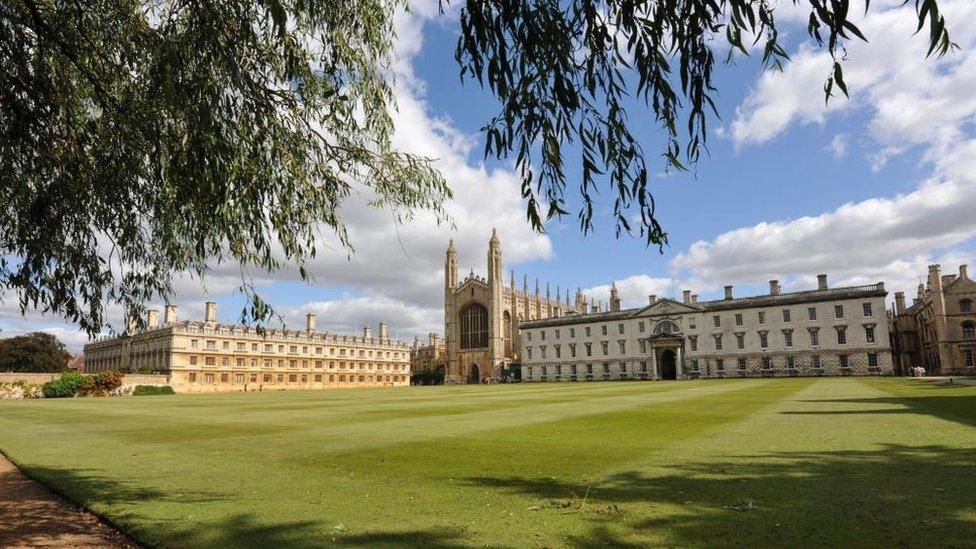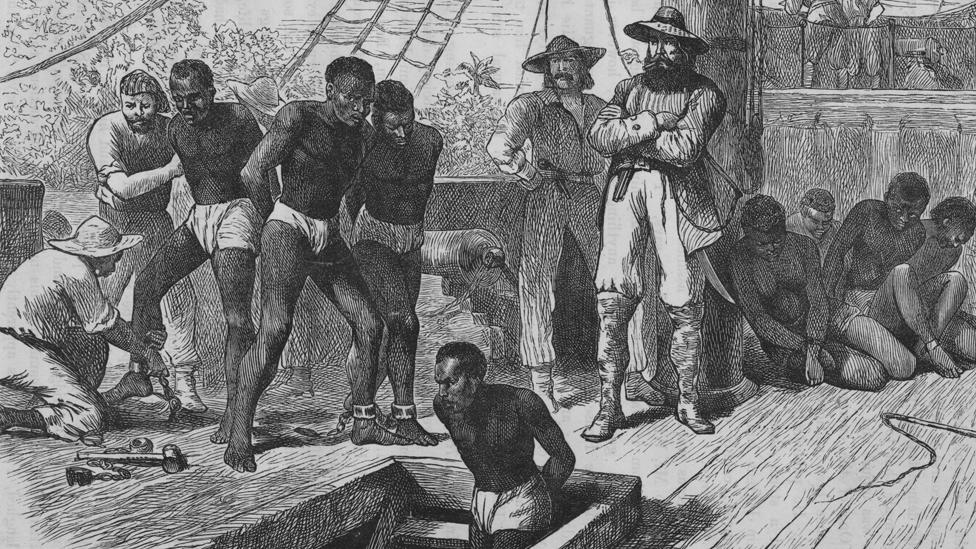Study finds Cambridge University 'benefited from slavery'
- Published

The study found the university received money from benefactors in the slave trade
The University of Cambridge received "significant benefits" from slavery, a report has found.
The study was carried out by the Legacies of Enslavement Advisory Group, appointed in 2019 by the university's vice-chancellor, Stephen Toope.
It found the university and its colleges benefited from companies and individuals participating in the trade.
Prof Toope said it was "inevitable" a university "as long-established as Cambridge" would have links to slavery.
Researchers found that fellows from Cambridge colleges were involved with the East India Company, while investors in the Royal African Company also had links to Cambridge, with both companies active in the slave trade.
The university also received donations from investors in both companies, and directly invested in another company active in the slave trade, the South Sea Company, the study revealed.
"Such financial involvement both helped to facilitate the slave trade and brought very significant financial benefits to Cambridge," the Legacies of Enslavement report said.
Following its investigation, the group has made a series of recommendations, which the university said it would implement.
These include setting up a dedicated slavery research centre, and enhancing existing academic links with universities in the Caribbean and West Africa.
It will also look at increasing the number of postgraduate scholarships and bursaries for black British students and students from Africa and the Caribbean, as well as commissioning a piece of art commemorating the achievements of black academics in the university.

The vice-chancellor of the University of Cambridge, Prof Stephen Toope, commissioned the study in 2019
Prof Toope said slavery was "until the 19th century, a widely accepted system of exploitation".
He said the report "helps us better appreciate the nature" of the university's links to slavery.
"It also offers a glimpse into some of the ways in which, as a provider of education, the university played a role in promoting some of the ideas that underpinned the practice of enslavement," he said.
In 2019, St Catharine's College removed a historic bell which "most likely" came from a slave plantation.
Earlier this year, accommodation at Clare College originally named The Colony was "re-designated as Castle Court".
But Jesus College lost a petition to relocate a memorial to Tobias Rustat, who invested in the Royal African Company.

Find BBC News: East of England on Facebook, external, Instagram, external and Twitter, external. If you have a story suggestion email eastofenglandnews@bbc.co.uk, external
Related topics
- Published30 April 2019
